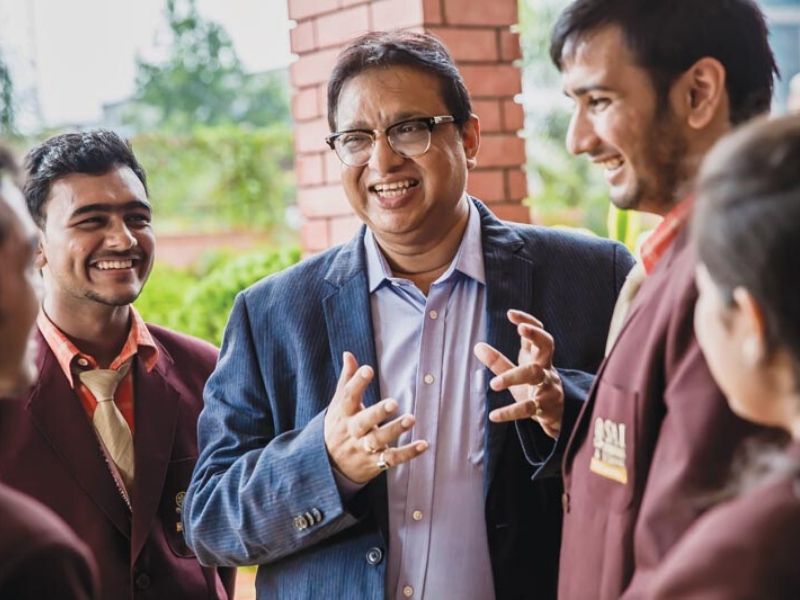
Dr. Bijaya Kumar Sahoo, Chairman, Sai International Group, Bhubaneswar
A former chartered accountant, Dr. Bijaya Kumar Sahoo is promoter-chairman of the Bhubaneswar (Odisha)-based SAI International Group. The group comprises two schools including the SAI International School, Bhubaneswar — ranked Odisha’s #1 day-cum-boarding school in the EW India School Rankings 2019-20 — and a preschool and college with a total enrolment of 5,260 students and 756 teachers. Dr. Sahoo is also special advisor with ministerial rank of the Odisha Adarsha Vidyalaya Sangathan discharging the mission of promoting 314 CBSE English-medium government schools in every block of Odisha.
Sai Institutions’ Covid-19 response. The calamitous coronavirus has shaken the world but not our conviction and resolve to continue the education of our students. After hundreds of hours of research we launched our SAI Cloud School on April 1. It focuses on scholastic and co-scholastic activities with teachers engaging children in online classes as well as co-curricular activities such as yoga, aerobics, art and crafts, dance, music and drama. And from June 1-15, we will be conducting an Online Summer Camp for our kindergarten to class XII students.
Major challenges confronting Indian education in the Covid era. Getting teachers accustomed to the new normal of online teaching is a major challenge. Simultaneously, we have to be alert about the dangers of excessive screen time for students, and parents’ struggles to supervise home learning. Yet the biggest challenge will be to deliver digital learning to children of government schools, especially in rural India. The country does not have the infrastructure and Internet bandwidth to provide online teaching-learning for all children.
On fees waiver/deferment circulars issued by state governments to private school managements. 85-90 percent of a school’s expenses are fixed. And online education is not child’s play. I and my teachers and IT team have spent many sleepless nights to design an effective online education system. Most private schools solely depend on fees to meet their expenses. State governments are setting a bad precedent by waiving and/or deferring school fees.
Top 3 proposals for reforming K-12 education in India. All these years India focused on providing children access to education, now the time has come to shift focus. My Top 3 reform suggestions:
• The government and private sector must collaborate to strengthen and expand the integration of technology in school education, and develop standardised online education platforms to ensure accessibility to all children
• Post-Covid, education will not be the same again. Schools need to revamp curriculums to prepare children for the uncertain future. The focus needs to shift from rote learning to developing life skills, building confidence, critical thinking and problem-solving capabilities
• Central and state governments need to urgently launch massive teacher training programmes for government and private school teachers, to upskill them in the use of new technologies and pedagogies.
Future plans. Our priority will be on integrating technology into education and continuously improving our holistic blended learning model.

























